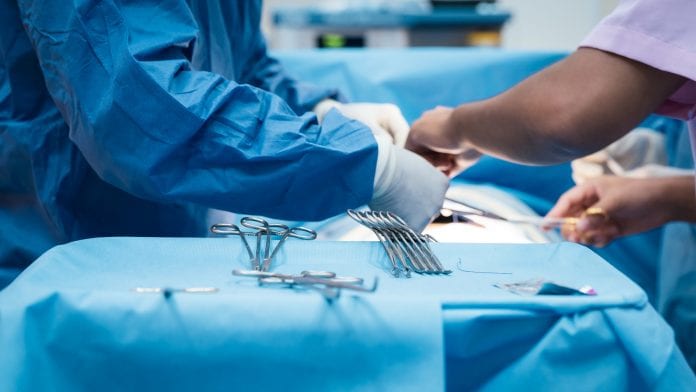
Scientists have discovered a potential treatment to protect immunocompromised patients from cytomegalovirus, a serious post-transplant infection.
Cytomegalovirus (HCMV) is a type of herpes virus that can affect virtually any organ and lead to a range of infections.
The anti-rejection drugs taken after transplant surgery prevent part of the immune system from functioning properly, and as the body is less able to fight infection, transplant patients are more likely to get infections and viruses.
A research team from the School of Clinical Medicine at the University of Cambridge has revealed that certain epigenetic inhibitors expose and help to destroy dormant HCMV infections, which can reactivate in immunosuppressed people and cause serious illness.
Estimates suggest that around 80% of the UK population is infected with HCMV; the virus can lay dormant for years in white blood cells, and even if it reactivates, in a healthy person, it is usually asymptomatic.
However, for immunocompromised people, reactivation of HCMV can have serious consequences. Its reactivation or re-infection in transplant recipients can result in serious illness, including organ rejection and even lead to death.
Globally, more than 200,000 kidney, lung and stem cell transplants take place each year and currently, reactivation of the virus occurs after half of these.
It is not currently understood why immunosuppressants both encourage the virus to reactivate and compromise the patient’s ability to fight against it and there isno cure for this post-transplant infection.
The researchers have discovered a drug type and treatment strategy that could massively reduce the effects of reactivation.
In a study published in PNAS, they explain how they subjected HCMV-infected blood samples to a range of ‘epigenetic inhibitors’, which are widely used cancer treating drugs. Through this, they hoped to cause the latent virus to generate proteins or targetable antigen visible to our immune system.
The researchers found that bromodomain inhibitors, a group of these drugs, were able to reactivate the virus by forcing it to convert its hidden genetic instructions into protein. As a result of this, T-cells in the blood samples could target and kill these formerly untraceable infected cells.
Lead author Dr Ian Groves said: “We are looking to purge the patient’s viral reservoir before they go into the operating theatre and before they start taking immunosuppressants, when they would become extremely vulnerable to the virus reactivating. In other words, we are proposing a pre-emptive strike.
“Prior to transplantation, many patients will have a relatively healthy immune system, so when the virus puts its head above the parapet, its cover is blown, and the immune system will see it and kill the cells it’s been hiding in. Ideally, donors would also be treated to avoid re-infecting recipients.”
There are similar drugs at varying stages of clinical trials taking place around the world, predominantly for cancer treatment, but also Type 2 diabetes-related cardiovascular disease.
Dr Groves said: “This would be the first type of treatment to reduce HCMV infection levels pre-transplant in order to lower the chances of virus reactivation during immune suppression after transplantation. Our findings could lead to thousands of lives being saved every year.
“In addition to the terrible human suffering this virus causes, treating its effects adds enormously to the high costs already incurred by transplantation. It’s a really serious issue for health services in wealthy nations and a desperate one in developing countries. Our findings offer an opportunity to transform this horrible situation.”
The scientists at the University of Cambridge hope that their study could help medical professionals fight HCMV in other areas, such as maternity care, as well as post-transplant infection.
























